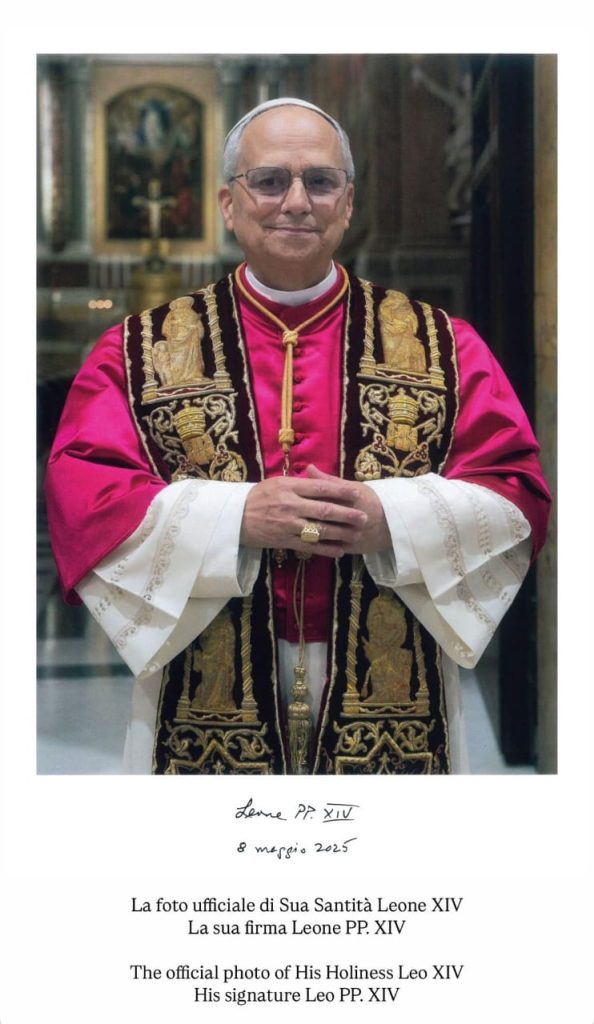The Latin Mass Society of New Zealand

Una Voce Federation President: Message on Leo XIV (“A Pope of the Anglosphere”)
A Pope of the Anglosphere
Joseph Shaw
President, Una Voce Federation (FIUV)
During the reign of Pope Francis, a lot of attention was, rightly, given to his Argentinian background, and the Argentinian assumptions and habits of minds that he may have carried. I am grateful to our Argentinian friends who helped us to understand what was going on, during a rather confusing time. Now we have a Pope from the English-speaking world – even if he has spent a great deal of time in Peru – and I feel that I can more easily understand him.
I don’t claim any great insight in him personally, but there are certain aspects of his background, and of what is already evident about his attitudes, which is very familiar to me. I have met and interacted with many people who share things with Pope Leo, which may be puzzling to people from outside this milieu: English-speaking, highly educated, and clerical.
Pope Leo seems to be very comfortable in liberal circles,and evidently was very acceptable to liberal Cardinals in the conclave, as well as, obviously, to Pope Francis, who made him a bishop and then a cardinal. Nevertheless, he is also acceptable, apparently, to conservatives, and has made some conservative signals, such as wearing the red Papal mozetta. Readers may think: well, he was a compromise candidate with middle-of-the-road opinions. However, this is an unhelpful description. He seems to me, on my admittedly limited knowledge, to be what I would call an open-hearted liberal.
I have met many clerics like this. They gravitate naturally to liberal-dominated areas of study, such as biblical scholarship or social justice, and their assumptions are liberal, say, about modern biblical criticism, or the importance of Vatican II ‘updating’ the Church. They are completely comfortable with the Novus Ordo. In other words, in the modern ecclesial environment, they are neither dinosaurs nor wildly eccentric.Nevertheless, when you talk to them, two things become apparent. First, they don’t hate you. If you are a traditionalist, this, sadly, is not something you can take for granted. Secondly, they acknowledge that harm has been done by overzealous ‘updating’: something has been lost, as well as gained.
Pope Francis himself signalled both these attitudes early in his pontificate. He said that Pope Benedict’s approach to traditionalists was ‘pastoral’, and, on another occasion, that the liturgical reform had led to a loss of mystery and of orientation towards God, by contrast with the Eastern Rites. These statements could be taken as signals not so much of openness towards Trads, but of sophistication. These are classy attitudes: the attitudes of educated, intellectually honest people who can see both sides of a question.
In some places in the Church, I gather, these attitudes are not to be found at all. Pope Leo, on the other hand, comes from a milieu in which they are quite common, and can go quite deep. The depth can be measured like this. First, a liberal might say: yes the Eastern Rites are very moving, our liturgy used be more like that. The second stage is to say: I can understand why some people are attached to the TLM, that’s not necessarily something unhealthy. The third stage is to say that the continued existence of the TLM in the life of the Church is a positive thing. The fourth stage is for a person to become personally interested in it: to attend or celebrate it, as something which contributes his own personal re-integration of a more mystical and contemplative spirituality: an enrichment of his own spiritual life.
Pope Francis may have been stuck at stage one. Pope Leo has got all the way to stage four. For it seems that he has learnt and celebrated the Traditional Mass himself, both as a priest and even in Rome, when a member of the Congregation for Bishops. We know this now from many sources.
This does not mean that he has taken on attitudes and positions unacceptable to liberal Cardinals in a conclave: obviously, that is not the case. It does not mean that he will implement our favourite shopping-list of measures: actually, no pope would do that. It does not even mean that liturgy is necessarily high on his agenda. What it does mean, I hope, is that when the subject arises, as it will before long, he will not continue a policy that has as its aim the destruction of the Traditional Mass, at least among clergy outside the Traditional Institutes and communities. I would imagine the most likely policy would be to let bishops and religious superiors allow it, unless is causes problems.
I was hoping for such a policy from Pope Francis’ successor, even if he had no understanding or interest in the subject at all, simply on the basis that Traditionis custodes has led to a lot of fuss and bother, and no tangible good result. With a Pope with Leo XIV’s background, I am even more confident that this will be the outcome.
Let us pray for Pope Leo. There are some traditional prayers for the Pope here; if you would like to contribute to a spiritual bouquet for him, an easy way of doing so would be to contribute to the one being organised by the Latin Mass Society in England here.